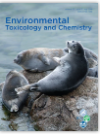 Ecological interactions and abiotic stress factors may significantly affect species sensitivities to toxicants and these are not incorporated in standard single species tests. This study tests the hypothesis if a model, calibrated solely on single species data, can explain abiotic stress factors in a two‐species microcosm, a test applied to the effects of nutritional stress (phosphorus (P)‐limitation) on zinc (Zn) toxicity to Daphnia magna.
Ecological interactions and abiotic stress factors may significantly affect species sensitivities to toxicants and these are not incorporated in standard single species tests. This study tests the hypothesis if a model, calibrated solely on single species data, can explain abiotic stress factors in a two‐species microcosm, a test applied to the effects of nutritional stress (phosphorus (P)‐limitation) on zinc (Zn) toxicity to Daphnia magna.News
 Ecological interactions and abiotic stress factors may significantly affect species sensitivities to toxicants and these are not incorporated in standard single species tests. This study tests the hypothesis if a model, calibrated solely on single species data, can explain abiotic stress factors in a two‐species microcosm, a test applied to the effects of nutritional stress (phosphorus (P)‐limitation) on zinc (Zn) toxicity to Daphnia magna.
Ecological interactions and abiotic stress factors may significantly affect species sensitivities to toxicants and these are not incorporated in standard single species tests. This study tests the hypothesis if a model, calibrated solely on single species data, can explain abiotic stress factors in a two‐species microcosm, a test applied to the effects of nutritional stress (phosphorus (P)‐limitation) on zinc (Zn) toxicity to Daphnia magna. This week, 6 GhEnToxLab members will be presenting their research at the 28th SETAC Europe Annual Meeting in Rome, Italy from 13-17 May 2018. There we will highlight our research in a total of 3 platforms and 7 posters. To keep track of us during the conference, a comprehensive list of our activities is provided below.
This week, 6 GhEnToxLab members will be presenting their research at the 28th SETAC Europe Annual Meeting in Rome, Italy from 13-17 May 2018. There we will highlight our research in a total of 3 platforms and 7 posters. To keep track of us during the conference, a comprehensive list of our activities is provided below. On the third of May, GhEnToxLab was one of the invited 'special guests' at the Gala of the Sustainable University as our research group was nominated for our sustainable travel policy. Our research group takes the lead in our University, by choosing public transport over private transport, by choosing videoconferencing over travelling and by not flying to easily accessible cities if travelling by train is an option. We look back at the Gala with some pictures.
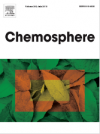 Here, we aimed to document the interaction between EPA and cadmium (Cd), as model chemical stressor, in Daphnia magna. A life-history experiment was performed in which daphnid neonates were raised into adulthood on three diets of different lipid composition: (i) algae mix; (ii) algae mix supplemented with control liposomes; (iii) algae mix supplemented with liposomes containing EPA. Dietary liposome supplementation was found to protect adult daphnids against acute Cd challenge.
Here, we aimed to document the interaction between EPA and cadmium (Cd), as model chemical stressor, in Daphnia magna. A life-history experiment was performed in which daphnid neonates were raised into adulthood on three diets of different lipid composition: (i) algae mix; (ii) algae mix supplemented with control liposomes; (iii) algae mix supplemented with liposomes containing EPA. Dietary liposome supplementation was found to protect adult daphnids against acute Cd challenge. 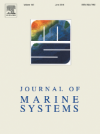 The effect of multiple stressors on marine ecosystems remains poorly understood and most of the knowledge available is related to phytoplankton. To partly address this knowledge gap, we tested if combining multimodel inference with generalized additive modelling could quantify the relative contribution of environmental variables on the population dynamics of a zooplankton species in the Belgian part of the North Sea.
The effect of multiple stressors on marine ecosystems remains poorly understood and most of the knowledge available is related to phytoplankton. To partly address this knowledge gap, we tested if combining multimodel inference with generalized additive modelling could quantify the relative contribution of environmental variables on the population dynamics of a zooplankton species in the Belgian part of the North Sea.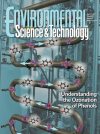
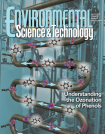
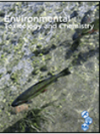 Ecological risk assessment (ERA) is commonly based on single generation ecotoxicological tests that are usually performed at one standard temperature. We investigate the effects of nickel (Ni) on Daphnia magna reproduction at 15, 20 and 25°C along four generations.
Ecological risk assessment (ERA) is commonly based on single generation ecotoxicological tests that are usually performed at one standard temperature. We investigate the effects of nickel (Ni) on Daphnia magna reproduction at 15, 20 and 25°C along four generations.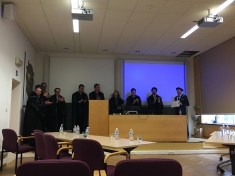
We are happy to announce that our colleague, Dimitri van de Perre, on March 14, 2018, defended his dissertation to earn his doctoral degree! During his PhD, his research focused on estimating and predicting risks of multiple stressors on aquatic communities. Congratulations, Dimitri!
